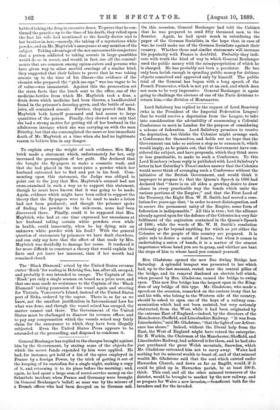To explain away the weight of such evidence, Mrs. May-
brick made a statement which, unfortunately for her, only increased the presumption of her guilt. She declared that she bought the fly-papers to make a cosmetic wash, and that she had placed in the meat-juice a powder which her husband entreated her to find and put in his food. Com- menting upon this statement, the Judge was obliged to point out to the jury that Mrs. Maybrick's counsel had not cross-examined in such a way as to support this statement, though he must have known that it was going to be made. Again, evidence which might have been called to support the theory that the fly-papers were to be used to make a lotion had not been produced; and though the prisoner spoke of finding the powder in the sick-room, none had been discovered there. Finally, could it be supposed that Mrs. Maybrick, who had at one time expressed her uneasiness at her husband taking certain white powders even while in health, could innocently, when he lay dying, mix an unknown white powder with his food P With the general question of statements by prisoners we have dealt elsewhere, and can only say here that the effect of that made by Mrs. Maybrick was decidedly to damage her cause. It rendered it far more difficult to construct a theory that would explain the facts and yet leave her innocent, than if her mouth had remained closed.


































 Previous page
Previous page